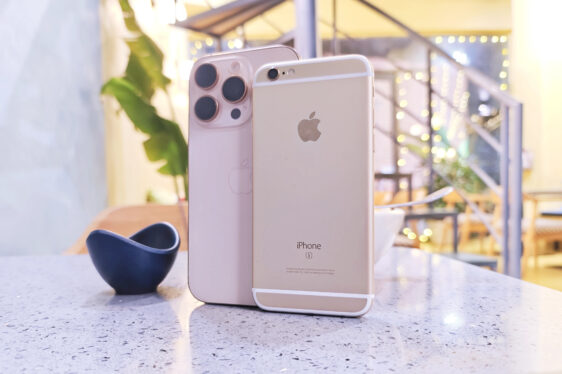It seems increasingly likely that Apple’s fourth-generation iPhone SE will feature the first 5G modem the company has built in-house. A new report from Bloomberg both confirms earlier reporting from 9to5Mac and clarifies that Apple’s first modem won’t be quite as capable as the chips the company is trying to leave behind.
The new modem, reportedly called “Sinope” won’t support mmWave, the short-range 5G technology Verizon offers that can theoretically reach speeds of up to 10 gigabits per second. It also will only offer four-carrier aggregation as opposed to Qualcomm’s six, “a technology that combines bands from several wireless providers simultaneously to increase network capacity and speeds,” Bloomberg says.
Apple’s modem will instead be focused on providing Sub-6 5G, the more common standard that’s already supported on the current iPhone SE, which was released in 2022. In testing, Apple’s new modem reportedly “caps out at download speeds of about 4 gigabits per second,” slower than Qualcomm’s current mmWave models, but the difference is easier to justify on a cheaper device and might not be that noticeable anyway. The goal is ultimately to achieve even tighter integration between the modem and other components of the phone to offer more important benefits than just download speed, like improved battery life.
Bloomberg writes that launching on the iPhone SE first is how Apple plans on managing the risks of its new hardware gamble. Debuting on the iPhone 17 Pro would be a mark of confidence, but most people expect a phone that costs upwards of $1000 to work without issues. Until Apple can guarantee that, the SE makes sense as a modem guinea pig. That won’t be the case for long, however. “Ganymede,” Apple’s second-generation modem, should be ready for the iPhone 18 in 2026 and match Qualcomm’s current offerings with mmWave support and faster download speeds. In 2027, the company’s “Prometheus” modem is aiming to surpass Qualcomm entirely in “performance and artificial intelligence features.”
A report published later today suggests these new modem designs could also have a pretty big influence on more than just the iPhone. Bloomberg attributes the thinness of the rumored iPhone 17 Slim to the space-saving efficiency of Apple’s new modem, and also suggests that future Macs and Vision headsets could get cellular connectivity in the future, too. This would mark the first time a Mac had onboard cellular, though the iPad has had the option since day one.
There’s still years before any of that happens, and the road to even get here has been long and winding. For one, Apple’s relationship with Qualcomm has been up and down. The companies were in a legal spat over patent violations that ultimately led to a settlement and a licensing deal in 2019. That same year is when Apple’s intention to move on from Qualcomm became more public with the purchase of Intel’s modem business. Apple has attempted to build a team that could create its first modem since then, and even re-upped its agreement to use Qualcomm modems through 2026 in 2023. It now seems like the company could be a position for that to be the last deal with Qualcomm it makes.
This article originally appeared on Engadget at https://www.engadget.com/mobile/smartphones/the-next-iphone-ses-new-modem-reportedly-wont-be-as-capable-as-qualcomms-205330204.html?src=rss






Leave a Reply